


When it comes to doing laundry, we all want to find ways to save time and money. So, what if you’re out of laundry detergent, but happen to have a bottle of shampoo on hand? Can you use shampoo as a substitute? In this article, we’ll explore whether or not shampoo can effectively clean your clothes.
Shampoo is designed to clean the hair and scalp, removing oil, dirt, and buildup. It contains surfactants and ingredients that create lather and foam to help lift away impurities. On the other hand, laundry detergent is specifically formulated to remove stains and dirt from fabric. It contains enzymes and other additives to tackle tough stains and odours.
Although it may seem tempting to use shampoo as a laundry detergent replacement, it’s not recommended. Shampoo doesn’t have the same cleaning power or ingredients as laundry detergent. It may not effectively remove stains or odours from your clothes. Additionally, using shampoo in your washing machine could potentially create excess suds and foam, leading to overflows or damages.
If you find yourself out of laundry detergent, it’s best to either purchase more or look for alternative cleaning solutions. You can try using dish soap, baking soda, or even a mixture of vinegar and water. These options may not be as effective as laundry detergent, but they can help in a pinch.
Note: Always check the care instructions on your clothing before using any alternative cleaning solutions. Some fabrics may be sensitive to certain ingredients or methods of cleaning.
In conclusion, while shampoo may appear to be a quick fix for laundry detergent, it’s not the best option. Stick to using shampoo for its intended purpose – cleaning your hair – and find other solutions for your laundry needs.
Can You Use Shampoo as Laundry Detergent?
Shampoo and laundry detergent are both cleaning agents, but they are formulated for different purposes. Shampoo is designed to clean hair, while laundry detergent is formulated to remove dirt and stains from clothing.
While it may be tempting to use shampoo as a substitute for laundry detergent in a pinch, it is not recommended. Shampoo is not formulated to effectively remove dirt and stains from fabrics, and it may not properly clean your clothes.
In addition, using shampoo as a laundry detergent can cause damage to your washing machine. Shampoo may create excessive foam and bubbles, which can lead to overflow and damage the machine’s sensitive parts.
If you find yourself in a situation where you have run out of laundry detergent, there are a few alternative options you can try:
- Use dish soap: In a pinch, dish soap can be used as a temporary substitute for laundry detergent. It is formulated to cut through grease and oil, which can also help remove dirt and stains from clothing.
- Make your own detergent: There are many DIY laundry detergent recipes available online that use common household ingredients such as baking soda, borax, and washing soda.
- Visit a nearby store: If possible, consider going to a nearby store to purchase laundry detergent or borrow some from a neighbor or friend.
In conclusion, while shampoo may seem like a convenient substitute for laundry detergent, it is not recommended. It is best to use products that are specifically formulated for their intended purposes to achieve the best cleaning results and avoid potential damage to your washing machine.
Understanding Different Cleaning Products
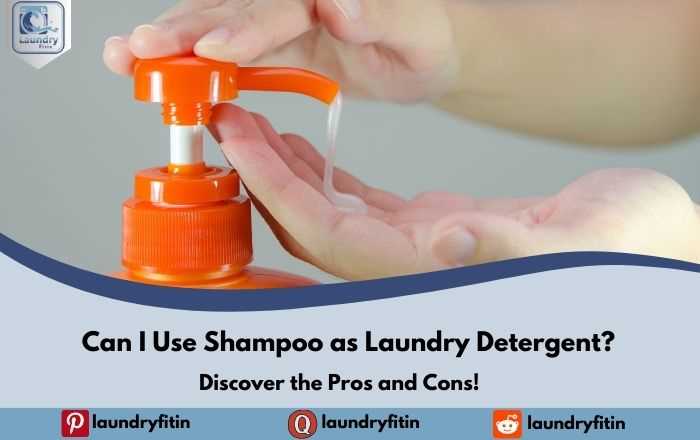
Shampoo
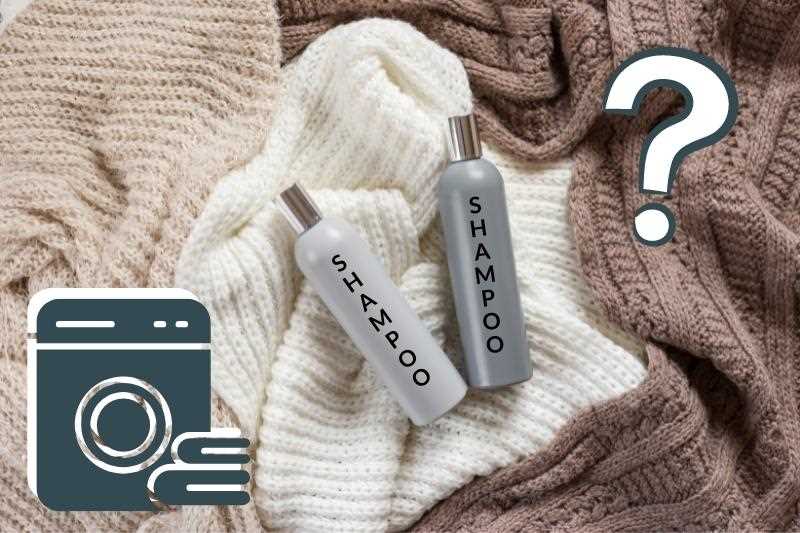
Shampoo is a cleaning product primarily designed for washing hair. It contains ingredients that cleanse the scalp and hair, removing dirt, excess oil, and styling products. Shampoo typically lathers well and has a pleasant fragrance. However, while it may be effective for hair, it may not be suitable for other cleaning purposes.
Laundry Detergent
Laundry detergent is specifically formulated for cleaning clothes in the washing machine. It contains enzymes and surfactants that help break down stains and remove dirt and odors from fabric. Laundry detergents come in various forms such as powders, liquids, and pods. They are designed to work efficiently in both high-efficiency (HE) and standard washing machines.
All-Purpose Cleaner
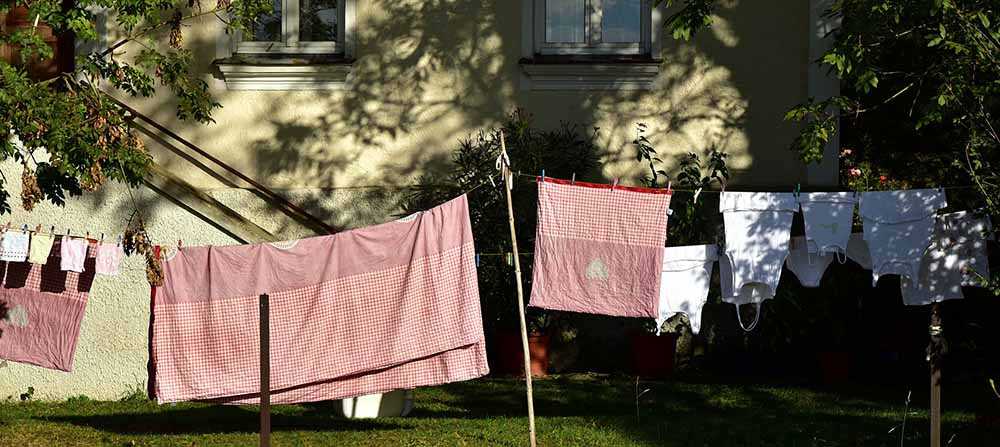
All-purpose cleaners are versatile and can be used for various cleaning tasks. They are designed to remove grease, grime, and dirt from different surfaces, including countertops, floors, and appliances. All-purpose cleaners come in spray or liquid form and usually require dilution with water before use. They are convenient for general cleaning around the house.
Glass Cleaner
Glass cleaners are specifically formulated to clean glass surfaces, such as windows, mirrors, and glass tabletops. They are designed to remove streaks, fingerprints, and other marks without leaving residue or causing streaking. Glass cleaners typically come in spray form and are easy to use with a microfiber cloth or paper towel.
Disinfectants
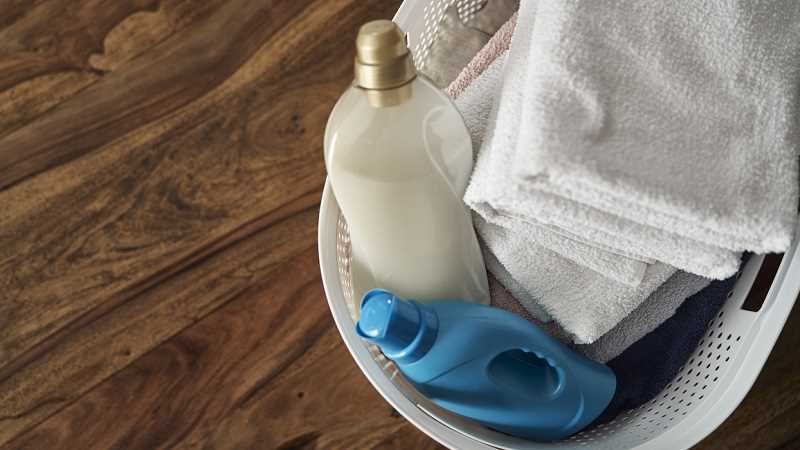
Disinfectants are cleaning products that are designed to kill or inactivate germs, viruses, and bacteria on surfaces. They are commonly used for cleaning and sanitizing bathrooms, kitchens, and other areas that require thorough disinfection. Disinfectants come in various forms such as sprays, wipes, and liquids. It is important to follow the instructions on the packaging to ensure effective disinfection
Floor Cleaner
Floor cleaners are specifically designed for cleaning different types of flooring, such as tile, wood, or laminate. They are formulated to remove dirt, stains, and grime without damaging the surface. Floor cleaners come in different forms, including concentrates, sprays, and mops. It is important to choose a floor cleaner that is compatible with the specific type of flooring being cleaned.
Toilet Bowl Cleaner
Toilet bowl cleaners are formulated to remove stains, mineral deposits, and odor-causing bacteria from toilet bowls. They are usually in liquid or gel form and are applied directly to the inside of the bowl. Toilet bowl cleaners often have disinfectant properties to ensure thorough cleaning and sanitation.
Surface Sanitizers
Surface sanitizers are cleaning products that are designed to reduce bacteria on surfaces. They are commonly used in kitchens, bathrooms, and other areas where germs can easily spread. Surface sanitizers come in various forms, including sprays, wipes, and liquids. It is important to select a sanitizer that is effective against a wide range of bacteria and viruses.
| Product | Purpose | Usage | Form |
|---|---|---|---|
| Shampoo | Hair cleaning | Specifically for hair | Liquid |
| Laundry Detergent | Clothes cleaning | Washing machine | Powder, liquid, pods |
| All-Purpose Cleaner | General cleaning | Various surfaces | Spray, liquid |
| Glass Cleaner | Glass surface cleaning | Glass, mirrors | Spray |
| Disinfectants | Germs/bacteria elimination | Sanitizing surfaces | Spray, wipes, liquid |
| Floor Cleaner | Floor cleaning | Various flooring types | Concentrate, spray, mop |
| Toilet Bowl Cleaner | Toilet cleaning | Toilet bowls | Liquid, gel |
| Surface Sanitizers | Bacteria reduction on surfaces | Various surfaces | Spray, wipes, liquid |
Exploring Shampoo Ingredients
Shampoos are formulated with a variety of ingredients that serve different purposes. Understanding these ingredients can help you choose the right shampoo for your hair type and address any specific concerns you may have.
1. Surfactants
Surfactants are the primary cleansing agents in shampoos. They help remove dirt, oils, and other buildup from the hair and scalp. Common surfactants used in shampoos include sodium lauryl sulfate (SLS) and sodium laureth sulfate (SLES).
- Sodium Lauryl Sulfate (SLS): This surfactant creates a rich lather and effectively removes oil and dirt. However, it can be harsh on sensitive scalps and may cause dryness or irritation.
- Sodium Laureth Sulfate (SLES): SLES is a milder surfactant compared to SLS. It produces a gentle lather and is often used in shampoos marketed as “sulfate-free.”
2. Conditioning Agents
Conditioning agents are added to shampoos to improve hair manageability, reduce frizz, and provide moisture. These ingredients help to detangle the hair and make it easier to style. Some common conditioning agents found in shampoos include:
- Silicones: Silicones form a protective barrier around the hair shaft, making it smoother and shinier. They also help to reduce frizz and enhance the hair’s appearance.
- Glycerin: Glycerin is a humectant that attracts and retains moisture. It helps to hydrate the hair and make it softer and more manageable.
- Essential Oils: Essential oils, such as argan oil or jojoba oil, provide nourishment to the hair, making it healthier and more lustrous.
3. Fragrances
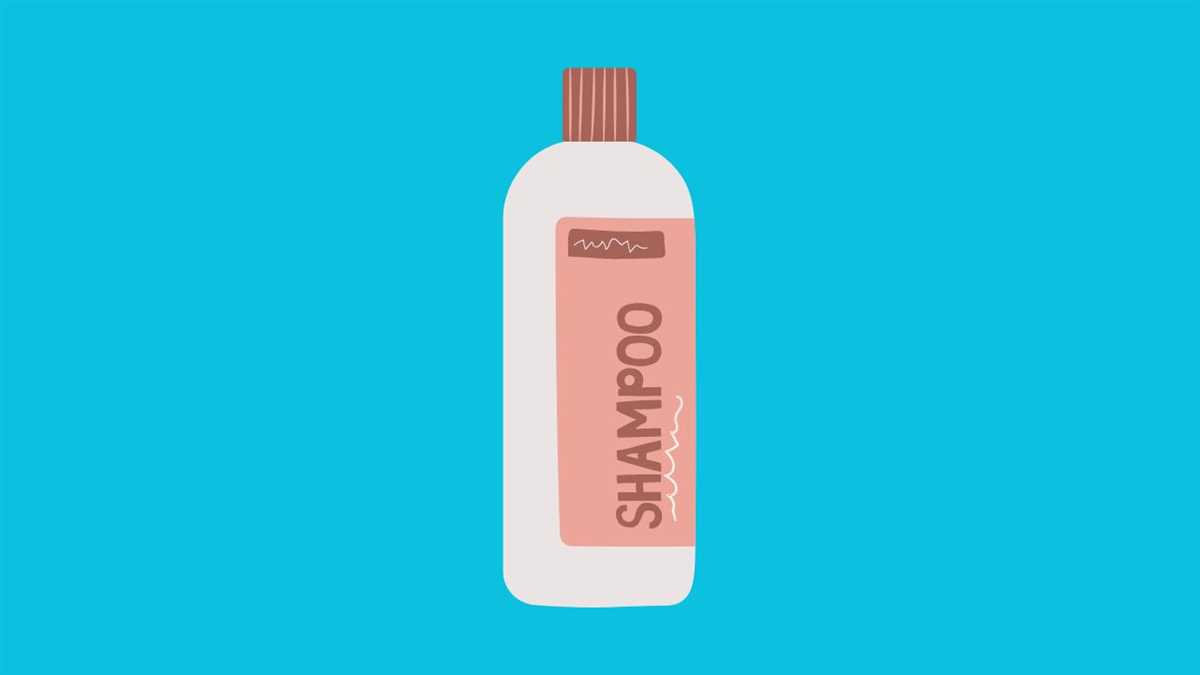
Fragrances are added to shampoos to enhance the user’s experience and provide a pleasant scent. However, some individuals may be sensitive to fragrance ingredients and may prefer fragrance-free or hypoallergenic shampoos.
4. Preservatives
Preservatives are used in shampoos to prevent microbial growth and prolong the product’s shelf life. Common preservatives include parabens, phenoxyethanol, and benzethonium chloride.
5. Colorants
Colorants are added to shampoos to give them their distinctive colors. These can range from natural pigments, such as plant extracts, to synthetic dyes. If you have sensitivities or allergies to certain dyes, it’s important to read the product label carefully.
6. Other Ingredients
Shampoos may also contain additional ingredients such as vitamins, antioxidants, or herbal extracts. These ingredients are often added to provide additional benefits to the hair, such as promoting hair growth or soothing the scalp.
| Ingredient | Function |
|---|---|
| Sodium Lauryl Sulfate (SLS) | Cleansing |
| Sodium Laureth Sulfate (SLES) | Cleansing |
| Silicones | Conditioning, frizz reduction |
| Glycerin | Moisturizing |
| Essential Oils | Nourishing |
| Fragrances | Scent enhancement |
| Preservatives | Microbial growth prevention |
| Colorants | Coloring |
Effects of Using Shampoo on Laundry
Using shampoo as a laundry detergent can have various effects on your laundry. While it may be tempting to use shampoo as a substitute for detergent if you run out, it is important to consider the following factors:
- 1. Cleaning Power: Shampoo is primarily designed for cleaning hair and scalp, not fabric. As a result, it may not have the same cleaning power as laundry detergent. This means that using shampoo may not effectively remove stains, dirt, and odors from your clothes.
- 2. Residue: Shampoo is formulated to leave a residue on your hair to make it soft and manageable. This residue can transfer to your clothes when using shampoo as a laundry detergent. Over time, this residue can build up on your clothes, making them look dull and feel stiff.
- 3. Color Fading: Shampoo may contain ingredients that are not suitable for maintaining the color of your clothes. Some shampoos have bleaching agents or brighteners that can cause colors to fade or change. Using shampoo as a laundry detergent may result in your clothes losing their vibrancy over time.
- 4. Fabric Damage: The ingredients in shampoo may not be gentle on all types of fabrics. Certain shampoos contain enzymes or chemicals that can weaken or damage delicate fabrics, leading to fraying, pilling, or shrinking.
In conclusion, while using shampoo as a laundry detergent in an emergency situation may be acceptable, it is not recommended for regular use. Shampoo may not have the same cleaning power as detergent, can leave residue on clothes, cause color fading, and potentially damage fabrics. It is best to use a proper laundry detergent specifically formulated for cleaning clothes to ensure the best results and preserve the quality of your garments.
Alternative Uses for Shampoo
Shampoo is commonly used for cleaning and maintaining our hair, but did you know that it can also be used for other purposes? Here are some alternative uses for shampoo:
1. Cleaning Makeup Brushes
Shampoo can be an effective cleaner for makeup brushes. Simply mix a small amount of shampoo with warm water, swirl the brush bristles in the mixture, and rinse thoroughly. This will help remove makeup residue and oils, leaving your brushes clean and ready to use.
2. Handwashing Delicate Clothing
If you have some delicate clothing items that require handwashing, you can use shampoo as a gentle alternative to laundry detergent. Fill a basin or sink with lukewarm water and add a small amount of shampoo. Swish the clothing gently in the mixture, rinse thoroughly, and lay flat to dry.
3. Cleaning Jewelry
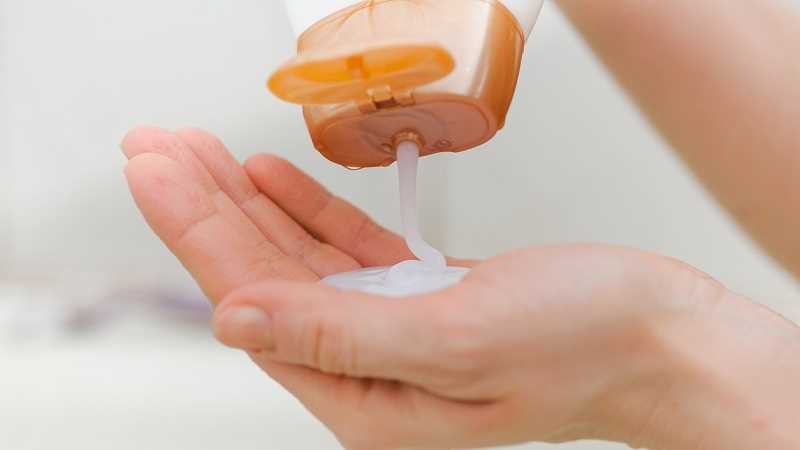
Shampoo can also be used to clean your jewelry. Mix a small amount of shampoo with warm water, and soak your jewelry in the solution for a few minutes. Use a soft brush to scrub any dirt or grime away, then rinse thoroughly and pat dry.
4. Removing Stains from Carpet or Upholstery
If you have a stubborn stain on your carpet or upholstery, you can try using shampoo to remove it. Mix a small amount of shampoo with warm water, and use a clean cloth or sponge to apply the mixture to the stain. Gently blot the area until the stain is lifted, and then rinse with clean water.
5. Washing Your Car
Shampoo can also be used as an alternative to car soap. Dilute shampoo with water in a bucket, and use a sponge or cloth to wash your car. Rinse thoroughly with water to remove any soap residue, and dry with a clean towel.
6. Handwashing Dishes
In a pinch, shampoo can be used to handwash dishes. Mix a small amount of shampoo with warm water, and use a sponge or dishcloth to clean your dishes. Rinse thoroughly with clean water to remove any residue.
While shampoo is primarily designed for cleaning hair, these alternative uses can come in handy in various situations. However, it is important to note that not all shampoos are suitable for these purposes, so be sure to check the label and choose a mild shampoo without any harsh chemicals.
FAQ
Can I use shampoo as laundry detergent?
Yes, you can use shampoo as laundry detergent. Shampoo contains similar cleaning agents that can effectively remove dirt and stains from clothes.
Will using shampoo damage my clothes?
No, using shampoo as laundry detergent will not damage your clothes. Shampoo is designed to be gentle on hair, and it will not harm most fabrics when used in the washing machine.
Are there any specific types of shampoo that I should use for laundry?
It is recommended to use a mild, fragrance-free shampoo for laundry. Avoid using shampoos that contain dyes or any other added chemicals, as they may leave residue on your clothes.
How much shampoo should I use for a load of laundry?
The amount of shampoo you should use depends on the size of the load and the level of dirtiness. As a general guideline, start with about half the amount of shampoo you would typically use for your hair. Adjust as needed.
Can I use shampoo as a stain remover?
Yes, shampoo can be used as a stain remover. Apply a small amount of shampoo directly to the stain, let it sit for a few minutes, and then wash as usual. However, for tough stains, it is recommended to use a dedicated stain remover for best results.
Can I use shampoo as laundry detergent?
Yes, you can use shampoo as a laundry detergent in a pinch. Shampoo contains many of the same cleaning agents as laundry detergent, so it can effectively clean your clothes. However, keep in mind that shampoo is designed for hair and may not be as powerful as laundry detergent in removing tough stains.
What are the disadvantages of using shampoo as laundry detergent?
While using shampoo as a laundry detergent may be convenient, there are some disadvantages to consider. Shampoo may not be as effective in removing tough stains compared to traditional laundry detergent. It may also leave a residue on your clothes or cause them to feel stiff. Additionally, using shampoo for your laundry might not be cost-effective in the long run, as shampoos tend to be more expensive than laundry detergents.











